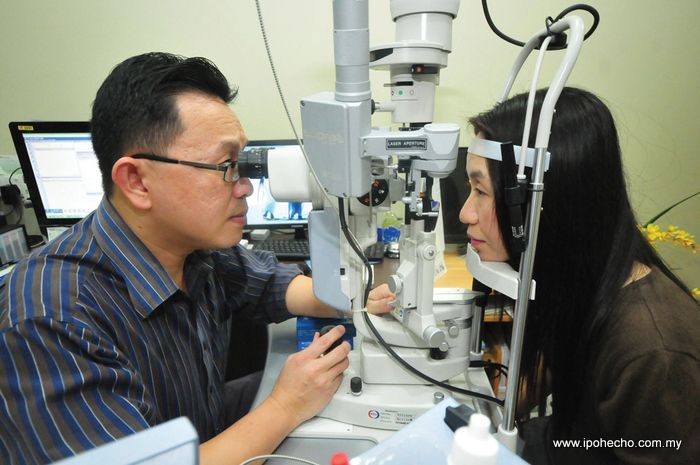

Wellness


The Retina is a thin nervous layer located inside the eye which cannot be replaced, unlike the lens which is replaceable; as in cataract surgery. Hence in dealing with the problems of the retina, an eye surgeon like Dr Ong has to perform salvage/reparative surgery in order to save the patient from becoming blind.
A condition called ‘Retinal Detachment’ often occurs where the neuroretina is separated from the underlying retinal pigment epithelial layer.
There are three types of retinal detachment. First is Rhegmatogenous retinal detachment where the cause of the detachment is due to a break in the retina. The second is called the Tractionalretina detachment where detachment is due to the pulling on the retina by scar tissue (for example in Diabetic patients with severe proliferative retinopathy). Lastly is the Serous retinal detachment, where there is a leakage from a lesion in the retina causing the retina to detach.


“Patients who have retinal tears or holes and certain types of peripheral retinal degeneration are at risk of retinal detachment. The same goes for those with high myopia (short sighted), eye infections such as retinitis and endophthalmitis and patients who had complicated cataract surgery,” said Dr Ong. He added that patients who have a family history of retinal detachment and previous ocular trauma, are also open to the risk of retinal detachment.
Although surgery is currently the only way to reattach the retina, Dr Ong suggests a prompt laser treatment to seal the retinal breaks as this can prevent retinal detachment.
“Should you suddenly be exposed to the onset of flashes of light, associated with floaters, blurring vision and visual field defects, like a dark curtain going across the eye, seek early treatment as visual outcome is best when the detached retina is repaired early,” added Dr Ong.
Patients who are keen on seeking more information about Retinal Detachment or have any questions about the field of ophthalmology can book an appointment with Dr Ong at 05 240 8777 Ext. 8335/8336 or visit KPJ Ipoh Specialist Hospital at 26 Jalan Raja Dihilir, 30350 Ipoh, Perak Darul Ridzuan.


